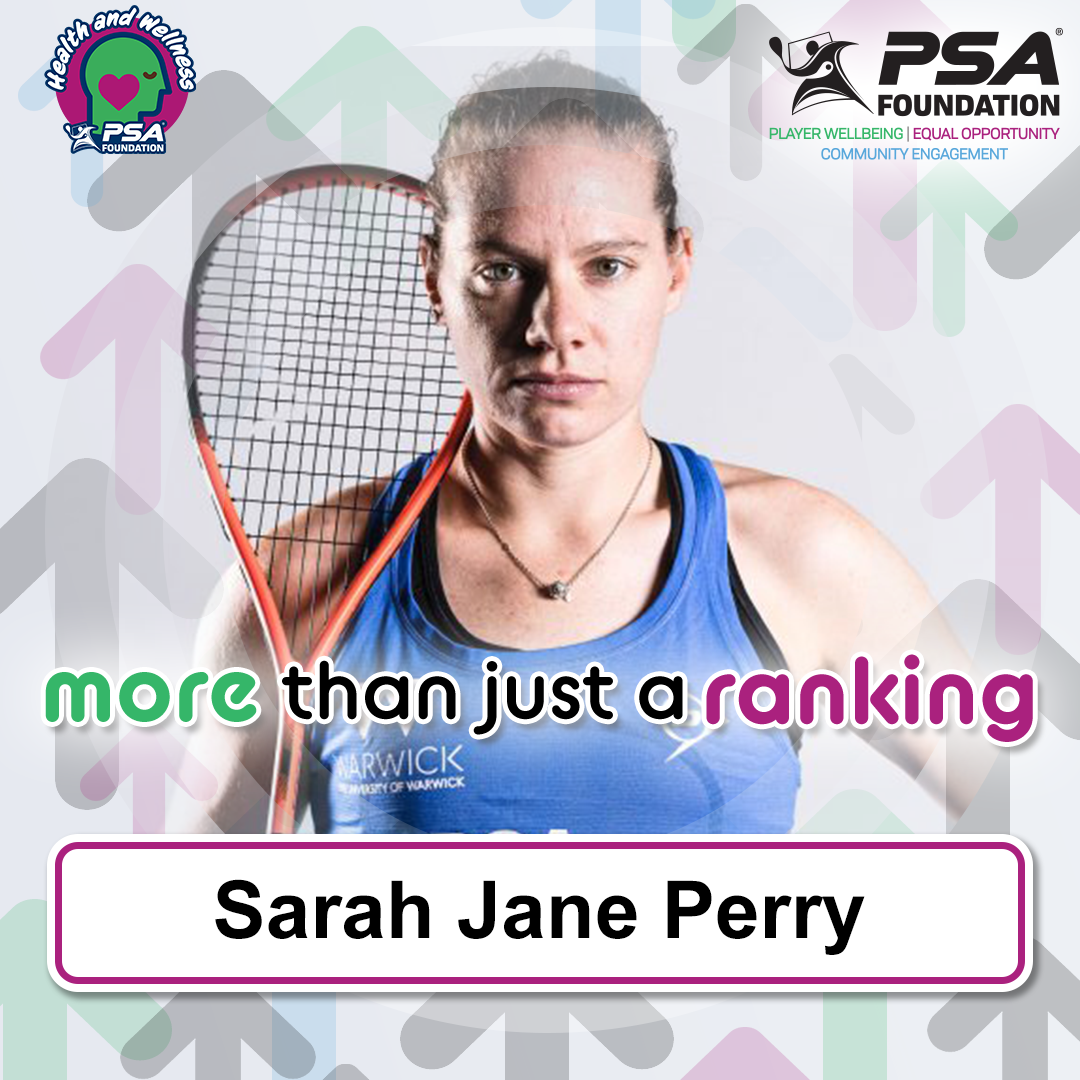More Than Just A Ranking is a series where we get a personal insight into squash players about more than just who they are on court.
In the latest episode, we speak with England Squash legend Sarah Jane Perry about how she got into squash, who motivated her to become a professional, and the legacy she’d like to have on the sport.
I started playing squash when I was about five years old, my dad used to play at the local club, a member’s club in Sutton Coldfield called the Four Oaks Club.
So we started going down to the Sunday morning junior sessions there, and then we moved to Kenilworth when I was eight, and continued on with the junior sessions and tournaments.
My dad was definitely the reason I started playing squash. He played on the teams at the club and he was the one that took me and my brother down on those Sunday morning sessions.
From when I was about ten years old at Kenilworth my coach Steve Townsend really taught me to make the most of my own attributes and we’ve learned to play the way that I enjoy playing as well.
He never discouraged me from attacking and playing around with angles and things like that. That’s the bits I really enjoy and love about the game, and he definitely instilled a lot of that into me until I went professional.
It was never really in my plan [tp become a professional player]. I think when I was playing the junior tournaments growing up as a teenager I was always surrounded by this idea that conveyed to me, not by the people closest to me, but by everybody else that I wasn’t built to play professional squash.
I was a good junior and it was probably going to end at that, really. It wasn’t like we had all of the SQUASHTV and everything like we have now.cI wasn’t viewing the professional game regularly at all.
I went to watch a couple of times but wasn’t seeing it regularly, and it wasn’t something that occurred to me as a possibility for me.
When I was doing my A-levels, I applied and went to university like all my friends were doing, and that was what everyone was doing- so that’s what I did.
Even at the end of university, actually got a graduate job and had the contract in front of me and my coach, Steve Townsend, he at the time, you know, I was quite excited telling him about these contracts and how I remember it anyway
He kind of said to me do you not want to give your professional squash a go? I really think you could get somewhere with it. I’ve really got some belief in you.
That conversation really changed my view on it. I had a lot of trust and respect for him, I still do. But you know he was the one I listened to about squash then so I thought well if I can get a graduate job now, I can get a job at any time
I always think that I’d like to be sort of remembered as a player that was tenacious and gritty and tried to find ways to overcome all the adversities put in front of me.
From the other perspective as well, I’ve been very involved over the last four/five years, maybe in the behind the scenes side representing the athletes, on the PSA Board and things like that.
It’s really important to me to ensure that the sport is remaining focused on the athletes while still moving forward, which is only going to benefit the athletes as well.
I’m passionate about fighting for the equality and equal pay and equal opportunities as well for female squash players in a professional squash landscape were to come sooner than planned.




